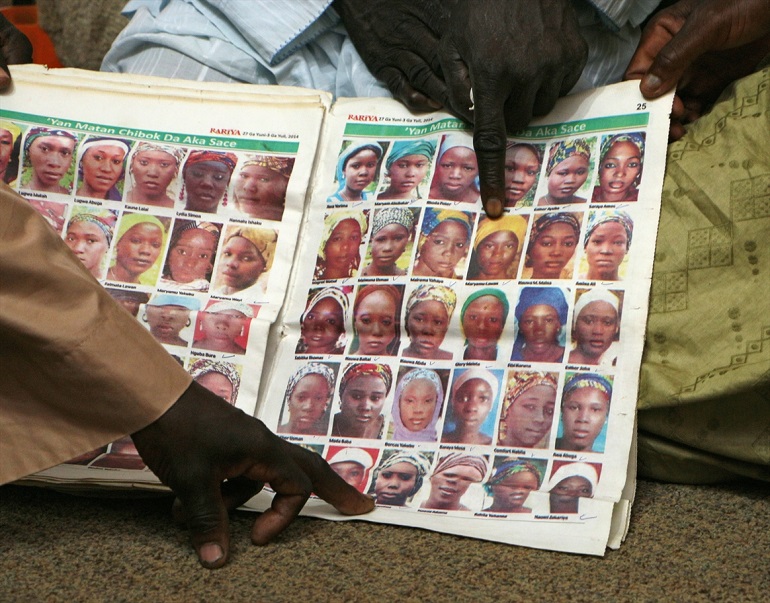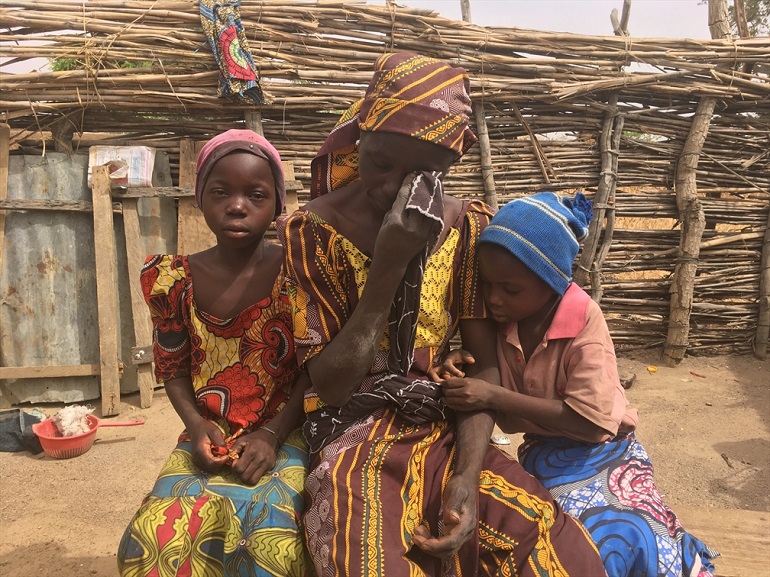
After relatives and activists commemorated on Saturday the 4th anniversary of the Chibok girls’ kidnapping, there are now fears that many of over 100 girls still missing will never return home.
Of the 276 schoolgirls kidnapped by Boko Haram on 14 April 2014, 57 escaped, 107 were rescued or released, and 112 are still missing.
And now a Nigerian journalist with links to the radical Islamist group has claimed that only 15 of the missing girls are still alive, though he did not disclose their names.
Ahmad Salkida, widely known for his exclusive reports on the insurgency, said it was the responsibility of the Nigerian government to disclose their names because, he alleged, many of the captive girls died as a result of crossfire and bombardments of the security forces.
19/ It will be unbearable to share the names of the 15 that are alive here, this is the responsibility of Govt. When I was involved I regularly provided proof of life. Govt must demand that to prove me wrong or stop negotiating for many of the girls that don’t exists… 😢
— Ahmad Salkida (@ContactSalkida) April 14, 2018
But the Nigerian government denied his claims, saying in a statement yesterday: “Following the numerous press enquiries on the information contained in the series of tweets by Mr Ahmed Salkida, we wish to reiterate that the information is not known to the officials of this administration either from the captors of the Chibok girls or the international intercessors who are working with us.”
A spokesperson told the BBC the government remains in discussions with Boko Haram to secure the release of the 112 girls who remain missing.

Campaign group Bring Back Our Girls recently called on the government to make public everything it knows about the girls. “The Federal Government claims that it has official and international contacts assisting in the process of getting our girls back. It follows therefore that the Federal Government has the added responsibility of making available the assuring intelligence and details which it has from its official and international contacts,” the group wrote in a statement on 15 April.
Salkida also cast doubt on the potential impact of future negotiations, saying the remaining 15 girls are no longer under the control of Boko Haram’s leader, Abubakar Shekau, and that only their new husbands can decide their fates.
17/ What is the status of the remaining 15 girls as far as negotiations are concerned? My investigations also revealed that, they are no longer under the control of #AbubakarShekau. According to sources, they are now ‘married’ and only their ‘husbands’ can decide their fates.
— Ahmad Salkida (@ContactSalkida) April 14, 2018
Salkida claimed he had negotiated for the girls’ release on behalf of the government, under the administration of former President Goodluck Jonathan, but that several opportunities to have them freed had been missed.
He said he had arranged for a prisoner-swap on five occasions, but delays from the government led to a breakdown in negotiations.